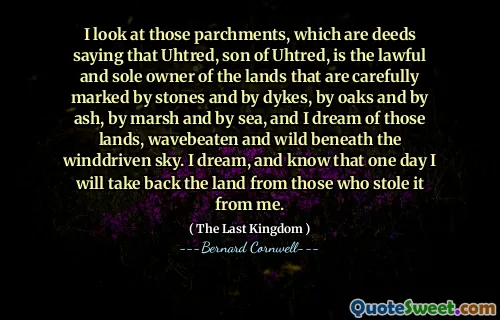
But Ubba? Only the gods tell him what to do, and you should beware of men who take their orders from the gods.
This quote from Bernard Cornwell's The Last Kingdom captures a profound warning about authority and conviction. Ubba, a character portrayed as someone guided solely by divine will, represents individuals who act with an unwavering belief in their mission's righteousness. The caution advised—"you should beware of men who take their orders from the gods"—raises important questions about faith, power, and the dangers inherent when conviction becomes absolute. It highlights the complex interplay between morality and obedience, suggesting that those who believe they are directly commanded by higher powers may become dangerously resolute, potentially dismissing reason, differing perspectives, or ethical consideration.
From a psychological perspective, such characters can embody the archetype of zealots or fanatics: individuals whose inflexible adherence to their perceived divine mandate can provoke conflict and impose harm in the name of a greater good, as they see it. It also touches on a timeless societal theme— the tension between individual free will and submission to a transcendent authority. In literature and history alike, men and women driven by divine justifications often reshape societies, for better or worse.
Moreover, the quote subtly warns the reader to be cautious about blind faith in leadership, especially when leaders conceal their intentions behind divine sanction. It prompts us to critically examine whether those who claim to execute divine will are genuinely virtuous or simply imposing their power. This nuance enriches Ubba's character and adds tension to the narrative, urging readers to reflect on the nature of authority and its sources. Ultimately, it's a reminder to hold critical awareness even toward the most sanctioned forms of command and allegiance.









